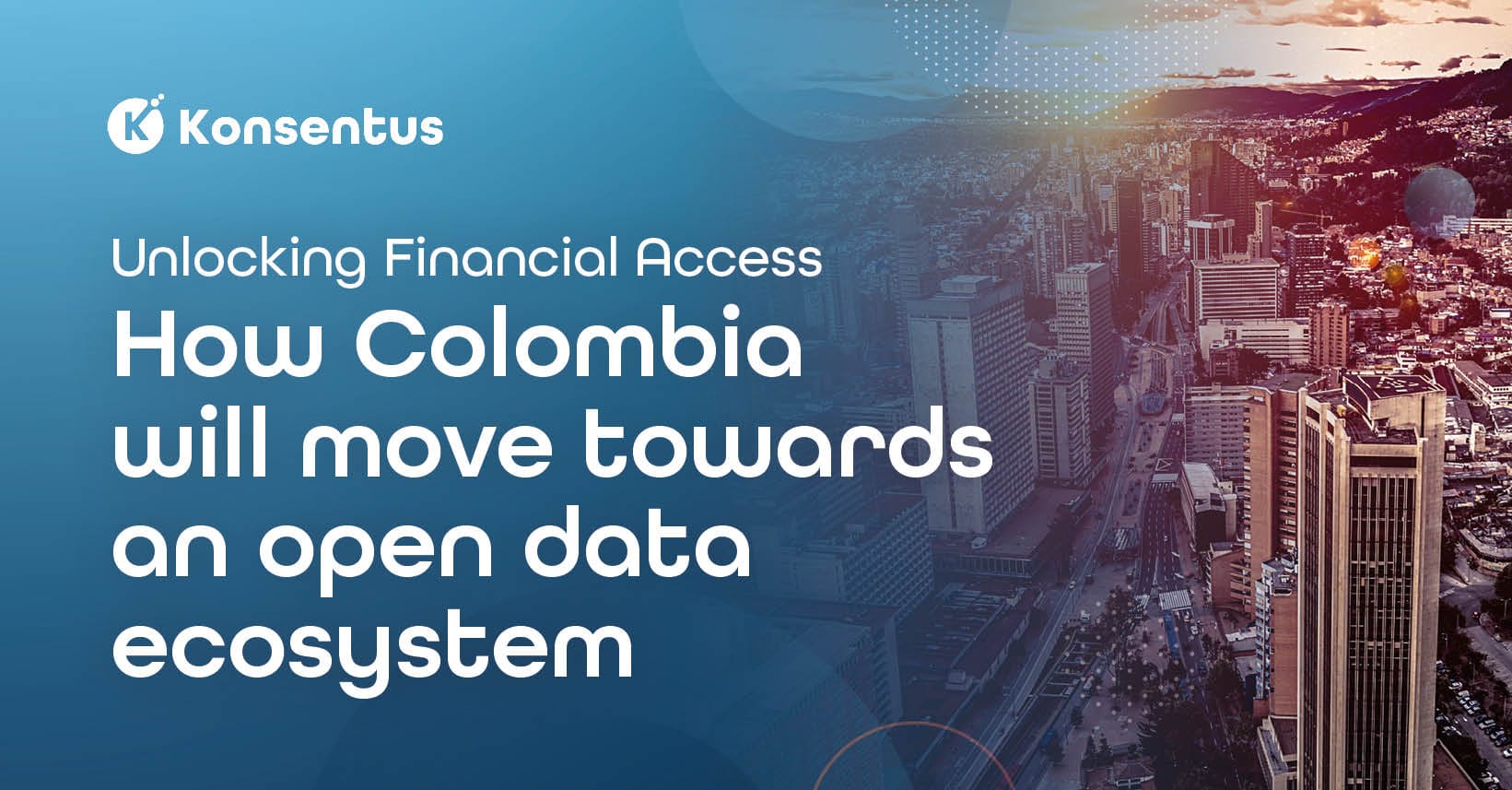Day 2 of Open Banking Expo London kicked off with a Fireside Chat between Luis Miguel Zapata, Vice President, Digital Ecosystems, Bancolombia and Lauren Jones, Director Market Development, Open Banking Exchange. Luis Miguel shared how Bancolombia will be embracing the regulatory aims of innovation, competition and financial inclusion as the market continues on its open journey.
Colombian market context
Open banking in Latin America is a common objective, with Colombia as one of the leaders in this area after Brazil and Mexico. In October 2021, Colombia’s Ministry of Finance and Public Credit published a consultation on a draft decree to regulate open finance, with the final decree being issued in July 2022. The purpose of open finance in Colombia was to promote ‘competition, inclusion and efficiency in the offering of services’. Nearly a quarter of the Colombian population was unbanked in 2020.
Whilst the decree was a useful step in formalising the open finance ecosystem in Colombia, the banks had been developing open APIs for fintech consumption long before the regulators picked up the mantle. The introduction of regulation has resulted in clarity on what is expected of banks and fintechs, but still preserves the right of banks to commercialise APIs ensuring the appropriate incentives are in place for banks to feel invested in the future of open finance.
In many markets, the relationship between banks and fintechs is maturing. What initially may have started as a combative relationship is now producing effective partnerships. Luis Miguel described how collaboration between the banks and fintechs in Colombia is extremely healthy and that it should be “an ecosystem, not an egosystem” in order for innovation to thrive.
How Colombia contrasts with other markets
Unlike many markets across the globe, the initial focus has been on payment initiation rather than data access. Whilst it is still nascent, the wider opportunity is significant. Today 7 out of 10 payments in Colombia are still made in cash, providing a significant digitization opportunity.
Colombia is also on the cusp of an open economy, open banking is just the start with a clear move towards open finance and ultimately open data. The UK in particular is still dreaming of open finance and, whilst Europe has initiated open finance legislation, it is still a long way from achieving it. Colombia is indeed benefitting from being a fast follower and learning from markets such as the UK, Australia and Brazil. In particular, Colombia is focused heavily on the Brazilian instant payment system, PIX. The Central Bank is leveraging similar standards used by PIX to deliver real-time payments for Colombia at maximum speed.
Colombia is still in the early stages of developing a governance model and common standards so is looking at how other markets have approached this.
A centralised vs decentralised approach for API access?
The recently published Konsentus Open Banking and Open Finance World Map shows that there are many markets now pursuing a centralised approach to API access. This even can include a central API switch. Bancolombia believes that the best model for Colombia is a combination of both centralised and decentralised elements. There will be central elements, such as a directory and common standards but, it also makes sense to leave room for large banks such as Bancolombia to develop their own APIs so that they can leverage their Banking as a Service business model.
For other smaller players, creating their own APIs may not be an option and more centralised services may make sense. However, the two are not mutually exclusive.
How is Bancolombia viewing the open banking opportunity?
Bancolombia is the largest bank in the market and has a 150-year heritage. Over the past 6 years, the bank has been transitioning to cloud and API architecture – they currently have 65 external APIs and process nearly 300 million API external calls per year.
Bancolombia has 23 million customers and is on the path to building a Super App to provide financial and non-financial services, comprising mobility and housing solutions, via their mobile banking app. Customers can open an account on their smartphone in under five minutes and make digital payments using a QR code. Their closed-loop QR code-based payment initiation service was launched three years ago and already has 1.5 million merchants with a further 4 million customers using the platform monthly. Bancolombia provides this QR code solution for free which has enabled customers who were traditionally unbanked to access the ecosystem. Bancolombia is already monetising the data and insights generated and is now making its closed-loop service interoperable with the entire financial system.
Bancolomobia is also enabling customers to consolidate their accounts with other providers within their banking app and is partnering with fintechs such as Finero so they can provide financial wellbeing services to their customers.
Bancolombia sees open finance as a ‘must have’ and is investing heavily in open finance capabilities, made possible by a C-suite that is forward-thinking with an innovative mindset. Senior management understands the future value derived from data-driven use cases and sees themselves as having the mandate to drive sustainable innovation for the benefit of the market – balanced with the appropriate commercial returns from their open banking investment.
What does the future hold?
Bancolombia sees tremendous opportunity for a regional open banking initiative, being championed by the fintech associations of the Pacific Alliance countries. Fintechs want to see South America as a single region so they can scale their solutions at pace. This presents a big opportunity, and the banks have a role to play in facilitating common standards. However, it is important to get local implementations right.
There will be implementation challenges for other industries as they move towards open data; these industries may well not be API-enabled. Short-term regulated screen scraping may facilitate these industries as a transitionary step and enable the mid-term ambition of delivering API access. Luis Miguel noted that whilst the UK and Europe might be benchmarks for open banking, the speed of adopting open finance in Colombia has been impressive and the UK should continue to build quickly on the success of its open banking regime.
Colombia is still maturing its open banking market but what is certain is that Colombia could soon be the new trailblazers to watch!
Open Banking Exchange and Miguel Zapata would like to thank the team at Open Banking Expo for the opportunity to share Bancolombia’s story with the OBExpo community.
This content was originally published in October 2023 by Open Banking Exchange. Open Banking Exchange advisory and consultancy services are now being provided by Konsentus. This content is therefore now available to visitors to the Konsentus website.

Guest: Luis Miguel Zapata
Vice President, Digital Ecosystems, Bancolombia

Moderator: Lauren Jones
SVP, Global Advisory, Konsentus





